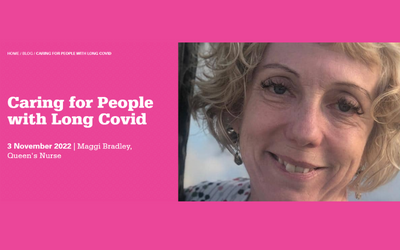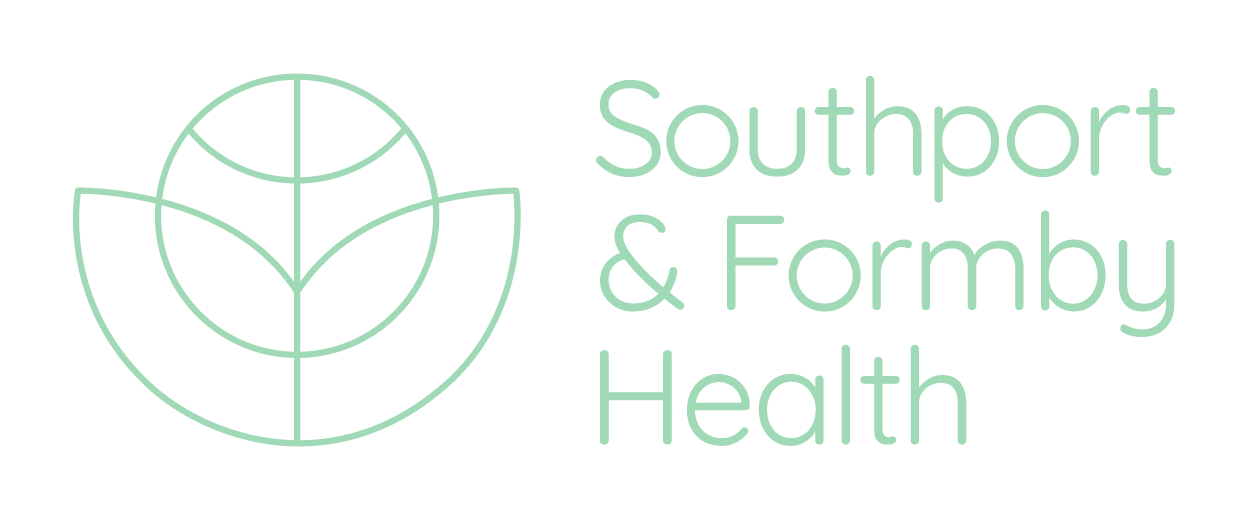Caring for People with Long Covid

Maggi Bradley, Nurse Clinical Lead at Sefton Training Hub has written a blog about caring for people with Long Covid for the Queens Nursing Institute:
Caring for People with Long Covid – The Queen's Nursing Institute (qni.org.uk)
From February 2021 to June 2022, I worked with a fantastic group of patients with Long Covid, supporting, treating, and facilitating them utilising video group clinics.
Working behind the scenes, initially with the general practice teams and Primary Care Networks, was vital to build the necessary infrastructure underpinning the project. I mapped out the structure of the clinic, to have a patient-led clinic approximately once a month focusing on ‘top topics’ for them and the condition.
Having the infrastructure to obtain the data for the geographical area, we were then able to contact patients who had been diagnosed with Long Covid. I had up to 10 people subscribed to attend the clinic, ranging from 30 to 80 years old. I set the agendas, we discussed goals, and I facilitated the group.
The patients attending the clinic initially thought this was a ‘support group’ and possible forum to speak, which at times it was. However, we had a planned objective and focus, so spending time to vocalise our vision within the group helped achieve the overall aims.
The project is a patient-led group, and the patients within the clinic were given ownership of the outcomes from the outset, which arguably resulted in the success it has had. The patients set future agendas and asked for speakers on certain topics such as breathing techniques and dietary needs. My role as facilitator was to ‘hold’ the group and empower the patients to continue a positive Long Covid journey.
On one occasion a lady attending was overcome with emotion, and we listened and stayed in the safe space with her. She later gave feedback that the group had allowed her to feel and voice things she had never previously been given the time or option to. The patients shared that hearing and speaking with each other in the clinic helped them feel validated in a way that they had not done before. I was realising how very powerful this clinic had become, and the value it had in people’s recovery. Of course, at times we had fun and laughed too, which is so important within a group clinic.
We supported each other when some members of the group became anxious about computer connectivity, and we had a resilience plan of calls in place, so everyone felt comfortable.
The clinic did not stop or ask people not to attend when they were seeing other professionals – it was important that the clinic ran, and people had a sense of belonging. The initial work of working collaboratively with the primary care network showed its importance, as at times I recognised that patients needed to seek further help. Referrals and conversations were seamless due to those relationships being made at the outset.
During the clinic, I had two student nurses who shadowed me and were involved in the clinic. They spoke of the learning being fundamental to their nursing journey. It is important to me that the learning around Long Covid continues, as nurses in the community and primary care will be treating, supporting, and managing Long Covid for many years to come. It was great to be part of that with the students.
The group has become so successful that when the group clinic sessions came to an end, the patients asked if they could continue to meet and learn together, and I am pleased to say they are now in the initial stages of becoming a patient-led Long Covid group.
I believe that this model has been a fantastic implementation of collaborative care, putting our patients at the heart of all the decisions and treatment options we can provide as Registered Nurses, and it would be great to see this standardised across Primary Care Networks nationally.
Maggi Bradley, Queen’s Nurse
